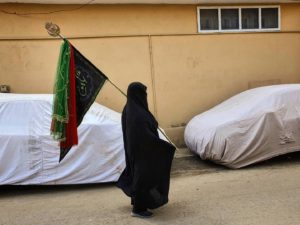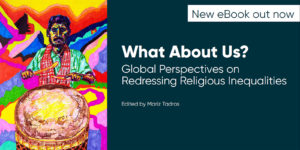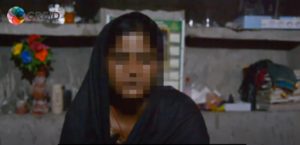
The lockdown imposed by the Government of Sindh during COVID-19 had a negative impact on the financial state of the region. Micro-enterprises owned by Hindu women in Karachi (the metropolitan city of Pakistan) were also deeply affected.
“My elder sister and seven other female companions were arrested by the local police as they tried to keep their food stalls functional”, told Rameela who sells dry fruits on the main road near Empress Market, Karachi. “The Government of Sindh had neither let us continue with our businesses nor provided any allowance or subsidy to help us cope with the financial distress due to COVID-19”, Rameela registered her complaint adding that they had to pay an additional amount to get her sister and other associates released from the police station.
“Our daily income used to be around PKR 400 – 500 before the lockdown. The coronavirus has not only been a threat to our lives but also our socio-economic well-being”, says Kavita, a mother of three. “My husband is a cancer patient who is confined to bed, and I am the only bread earner of the family”, she shares with a pang of sorrow. “We are also facing financial trouble to pay for the children’s education”, she further explained.
“We don’t have another source of income and none of the Government relief drives have reached us”.Lachmi – a street vendor from Empress MarketSHARE33TWEET
“The district Government announced a shutdown of the whole city without giving any consideration to the daily wage labourers living in the area. I have a small set up where I sell dry fruits. How do they expect my family to survive?”, questioned Lachmi, a 32-year-old. “We don’t have another source of income and none of the Government relief drives have reached us”. “We do not have anything saved up for our future survival either. Even when the restrictions were lifted, the number of customers showing up at the markets was still very low”, she explained.

COVID-19, as a global pandemic, has created a unique set of challenges for people all around the world. However, developing countries like Pakistan were at increased health risk due to limited supplies and resources. The Government of Pakistan urged everyone to stay at home and imposed a strict lockdown across the country to minimize the movement as well as public interaction. But this strategic measure added to the misery and vulnerability of low-income groups and informal workers as their businesses were shut down.
The plight of religious minorities could often go unrecorded and unaddressed as they form a small percentage of larger demographics is.
Original content published in partnership with CREID by Ravadar



